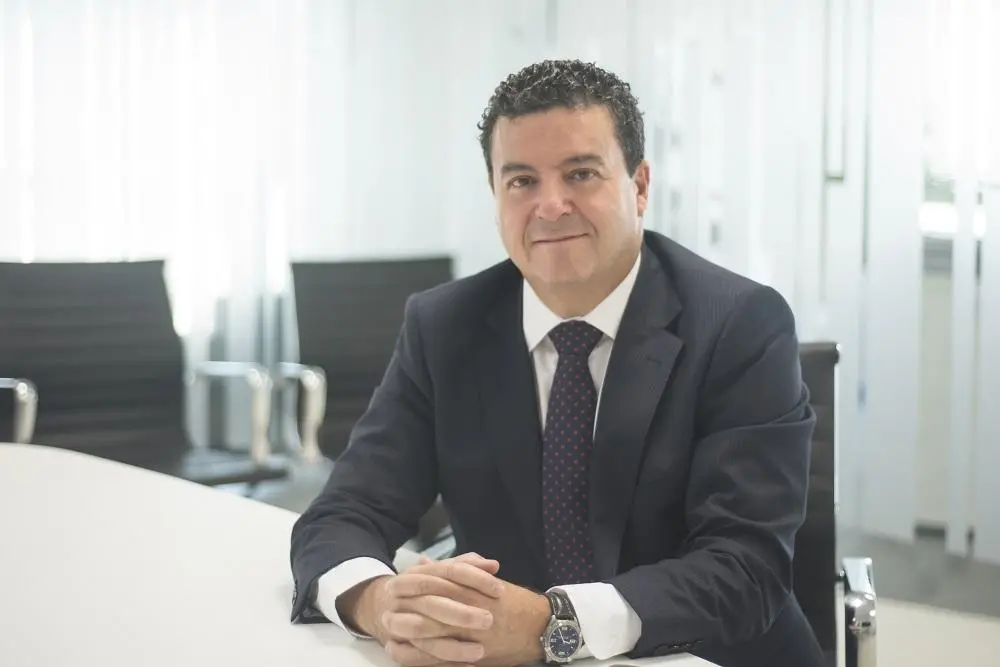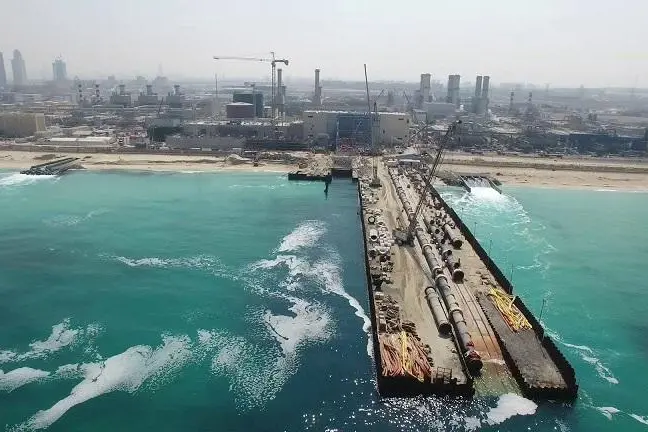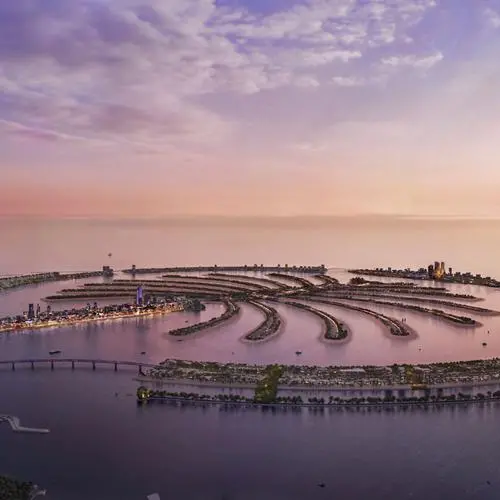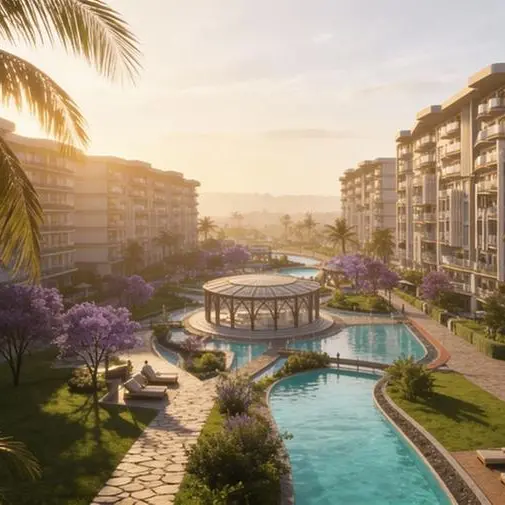PHOTO
Spanish infrastructure giant Acciona has launched a new five-year master plan - SMP 2025 - to advance its environmental, social and governance (ESG) goals.
Ranked top 100 globally in 2020 for economic and ESG indicators, the company is now spearheading a new, ground-breaking sustainability model.
Acciona is already a household name in major utility and infrastructure projects in the Gulf Cooperation Council (GCC) region, both as a developer and as an Engineering, Procurement and Construction (EPC), and Operations and Maintenance (O&M) contractor.
The new sustainability blueprint will include over 80 initiatives across four areas, namely: climate, biodiversity, circular economy and water management. These will contribute to the company’s de-carbonisation and sustainable infrastructure development aims.


Jesús Sancho, Managing Director-Middle East, Acciona
The company’s Middle East Managing Director, Jesús Sancho, said Acciona’s desalination, rail and renewable energy projects in the Gulf have contributed to its ESG achievements.
Major projects executed include the Shuqaiq-1 Sea Water Reverse Osmosis (SWRO) desalination plant in Saudi Arabia, where “Acciona is a co-investor in the 25-year public-private partnership project, as well as Dubai’s metro ‘Route 2020,’ where it was a member of the Expolink consortium that designed and built the railway, as well as phase 3 of the 1054MW Mohammed bin Rashid Al Maktoum Solar Park, one of the world’s largest photovoltaic solar plants, where it was the EPC contractor.”
Sancho added that Acciona was awarded the top ESG score across power sectors by S&P Global in its Sustainability Yearbook 2021 with a rating of 90 points out of 100.
Advanced water treatment
The new sustainability plan includes the provision of water treatment and production services using advanced technology.
“Desalinated water production in this region is estimated to be 13 times higher by 2040 than in 2014, due to climate change and population growth. Therefore, desalination is presented as a solution to climate change,” Sancho added.
The company is a global leader in seawater reverse osmosis desalination (SWRO) technology, and claims its process produces 6.5 times less greenhouse effect emissions than the thermal desalination technology currently available in the region and around 4.5 times less than the average of all technologies globally, ” a spokesman said.
The Spanish contractor has built several SWRO-based desalination plants in the Gulf region, including Jebel Ali and Fujairah 1 in the UAE; Al Khobar 1 and 2, as well as Shuqaiq 3 and 4 in Saudi Arabia, and Ras Abu Fontas A3 and Umm Al Houl 1 and 2 plants in Qatar.
“Just in the GCC region, we manage a portfolio that generates a combined capacity in excess of 2.8 million cubic metres per day of desalinated seawater to serve more than 500,000 households,” Sancho said, adding that the company had also reduced energy consumption at its water treatment centres through implementation of the ISO 50001 standard.
Emission reduction
Acciona wants to reduce emissions by up to 60 percent and have ‘zero waste’ business models under its new SMP 2025.
Sancho said the company has met its emission reduction targets, reducing CO2 by 7 percent compared to the last year, and reducing its emissions from suppliers' scope by 41 percent.
He pointed out that Phase 3 of the Mohammed bin Rashid Al Maktoum Solar Park, which has over 3 million photovoltaic modules with trackers, is preventing atmospheric CO2 emissions of approximately 1.4 million tonnes per year.
In March, Acciona announced that it would finance an Artificial Intelligence project at the Umm Al Houl desalination plant in Qatar – one of only 14 projects chosen from its fund for the potential to significantly reduce carbon emissions associated with the company’s business activities.
In the UAE, to reduce the carbon footprint of construction activities at the Dubai Metro Route 2020 project, the company used B20 biodiesel for all its static construction equipment and reduced on-site waste generation.
Sancho said the Route 2020 metro stations had already obtained the highest global qualification for sustainability in construction, the LEED Gold sustainability certification, making the metro the largest Gold LEED certified transit project in the world.
“To increase the energy efficiency and reduce the environmental impact of the metro stations, Acciona optimised cooling systems, installed solar panels for energy, and used insulating material for the external walls and roof claddings, among other initiatives.
“The project had mandated high efficiency criteria in the selection of materials and systems for each of the buildings, taking into account the location’s harsh climate conditions, delicate environment and existing resources. This has resulted in smart, eco-efficient and more sustainable stations, which will save considerable energy and water throughout their lifespan.”
Since 2016, all emissions of greenhouse gases that could not be reduced are compensated through certified carbon credits (CER-Certified Emission Reductions) which are generated by projects registered with the UNFCCC (United Nations Framework Convention on Climate Change) as CDM-Clean Development Mechanisms.
“As a result, ACCIONA is carbon neutral since 2016,” said Sancho.
Circularity and EU Taxonomy
Under SMP2025, to increase the circularity of business activities, the company has set a target to double the use of recycled products and halve the waste destined for landfill, and to cut its water use by 50 percent, especially in places with severe water stress.
The company will be 100 percent renewable energy first in all its business projects using its self-developed ‘green chain’ application based on blockchain technology.
In 2020, Acciona met, for the third year running, classification of its activities according to the criteria established by the European Union's sustainable finance taxonomy.
In 2020, 85 percent of its CAPEX and 84 percent of its EBITDA met the requirements established in relation to climate change mitigation. Under SMP25, the company will ensure 90 percent of its investments are classified within the sustainable finance taxonomy.
Acciona recorded sales of €6.47 billion in 2020.
(Reporting by Anoop Menon; Editing by Charles Lavery)
Disclaimer: This article is provided for informational purposes only. The content does not provide tax, legal or investment advice or opinion regarding the suitability, value or profitability of any particular security, portfolio or investment strategy. Read our full disclaimer policy here.
© ZAWYA 2021





















